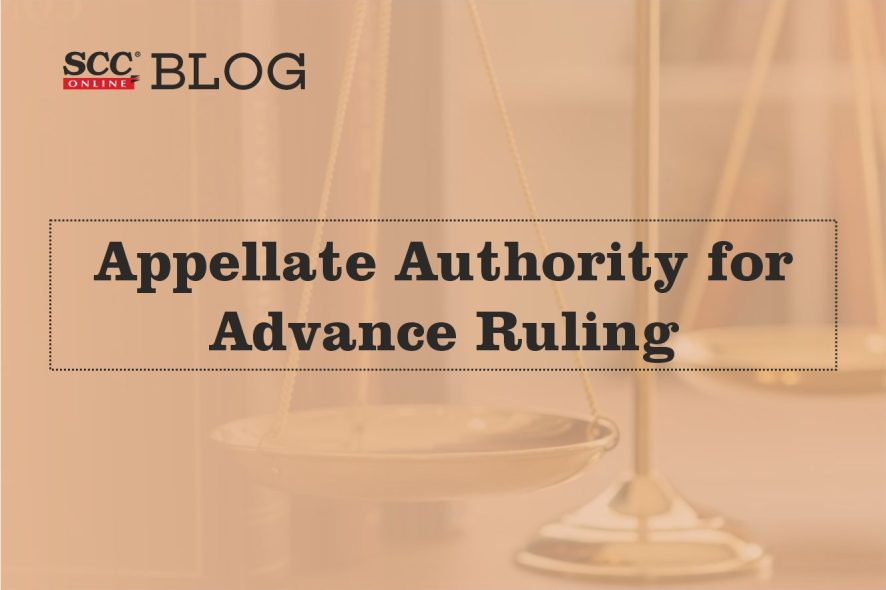Appellate Authority for Advance Ruling (Maharashtra): In an appeal filed under Section 100 of the Central Goods and Services Tax Act, 2017 (‘CGST’) and the Maharashtra Goods and Services Tax Act, 2017 (‘MGST’) being aggrieved by the advance ruling passed by the Maharashtra Authority of Advance Ruling (MAAR), the two-member bench of Ashok Kumar Mehta and Rajeev Kumar Mital while setting aside the ruling passed by the MAAR, held that since the impugned activities undertaken by the appellant are not construed as “supply” in terms of section 7(1)(a) of the CGST Act, 2017 the reimbursement amount paid by the Maharashtra Government to the appellant for undertaking the activities specified under “One stop Crises Centre Scheme” floated by the Central Government, will not be subject to the levy of GST.
The appellant is a charitable trust registered under Maharashtra Public Charitable Trust Act, 1950 and undertakes services to orphans and homeless children by way of providing shelter, education, guidance, clothing, food and health, on behalf of the Women & Child Development Ministry of Government of Maharashtra. Further, the trust also renders services under “One stop crises centre” scheme introduced by the said Ministry to destitute women who are litigating divorce, or homeless, or the victims of domestic violence. Under the “One Stop Crises Centre” Scheme the appellant was selected as an implementation agency and a grant of amount up to Rs. 2,00,000/- per month was approved under the said scheme, wherein the trust will only act as an implementing agency and will use the grant amount in a specified manner. Since the appellant was not sure of the GST applicability of the “One Stop Crises Centre”, an application was made with the Maharashtra Authority of Advance Ruling (MAAR) for the purpose of ensuring if the aforementioned transactions are liable to GST or not. The MAAR passed an order confirming the GST applicability on the impugned transactions.
The issues before the Appellate Authority are:
-
Whether the impugned activities undertaken by the appellant as an implementing agency of the Government can be construed as services; If yes, whether the same can be construed as supply in terms of section 7(1)(a) of the CGST Act, 2017?
-
Whether the impugned activities undertaken by the appellant can be construed as “Charitable activities” in terms of the clause (r) of the definition section of the Notification No. 12/2017 of Central Tax (Rate)?
The Authority referred to the definition of “service” provided under Section 2(102) of the CGST Act, 2017, and observed that GST law has given a very wide connotation to the term “services”, which covers any activities other than those which involve goods. money and securities. Further, as the activities undertaken by the appellant do not entail supply of any goods, money, or securities to their recipient, that is the State Government, who is compensating for the activities undertaken by the appellant under the said scheme, thus, the activities of the appellant would aptly be construed as service.
The Authority further referred to the definition of the term “supply” as provided under section 7(1)(a) of the CGST Act, 2017, and observed that the term “supply” has got very wide connotation due to the presence of the clause “all forms of supply of goods or services or both”. Thus, for any transaction to be qualified as “supply” under CGST Act, 2017, the said transaction is required to satisfy the pre-requisites, that such supply should be made by a person for consideration and that such supply should be made in the course or furtherance of business. Moreover, the Authority examined the definition of the term “consideration” and observed that it shall not include any “subsidy” given by the Central Government or State Government. It was also observed that the term “subsidy” has not been defined under the CGST Act, 2017, thus, the Authority took note of the dictionary meanings of the term “subsidy” and noted that any amount granted by a government to any private person or company for undertaking any charitable activities, which are beneficial to the public, will be construed as subsidy.
Thus, it was observed that the appellant is being granted a fixed amount of money from the State Government under the said scheme for taking overall care of the destitute women who are litigating divorce, or homeless, or the victims of domestic violence and the said activities are clearly for the welfare of these destitute women, thereby, serving mankind in general, hence, the said amount of money reimbursed by the government to the appellant is nothing but subsidy, as the entire money is being spent in the activities which are advantageous to the public. Thus, it amounts reimbursed by the government to the appellant is a subsidy, and in absence of any consideration would not be construed as supply in terms of Section 7(1)(a) of the CGST Act, 2017.
[Jayshankar Gramin and Adivasi Vikas Sanstha, In re, 2022 SCC OnLine Mah AAAR-GST 2, decided on 21.09.2022]
Advocate who appeared in this case :
Chartered Accountant Durgesh Kalantri, Present for the Appellant.






